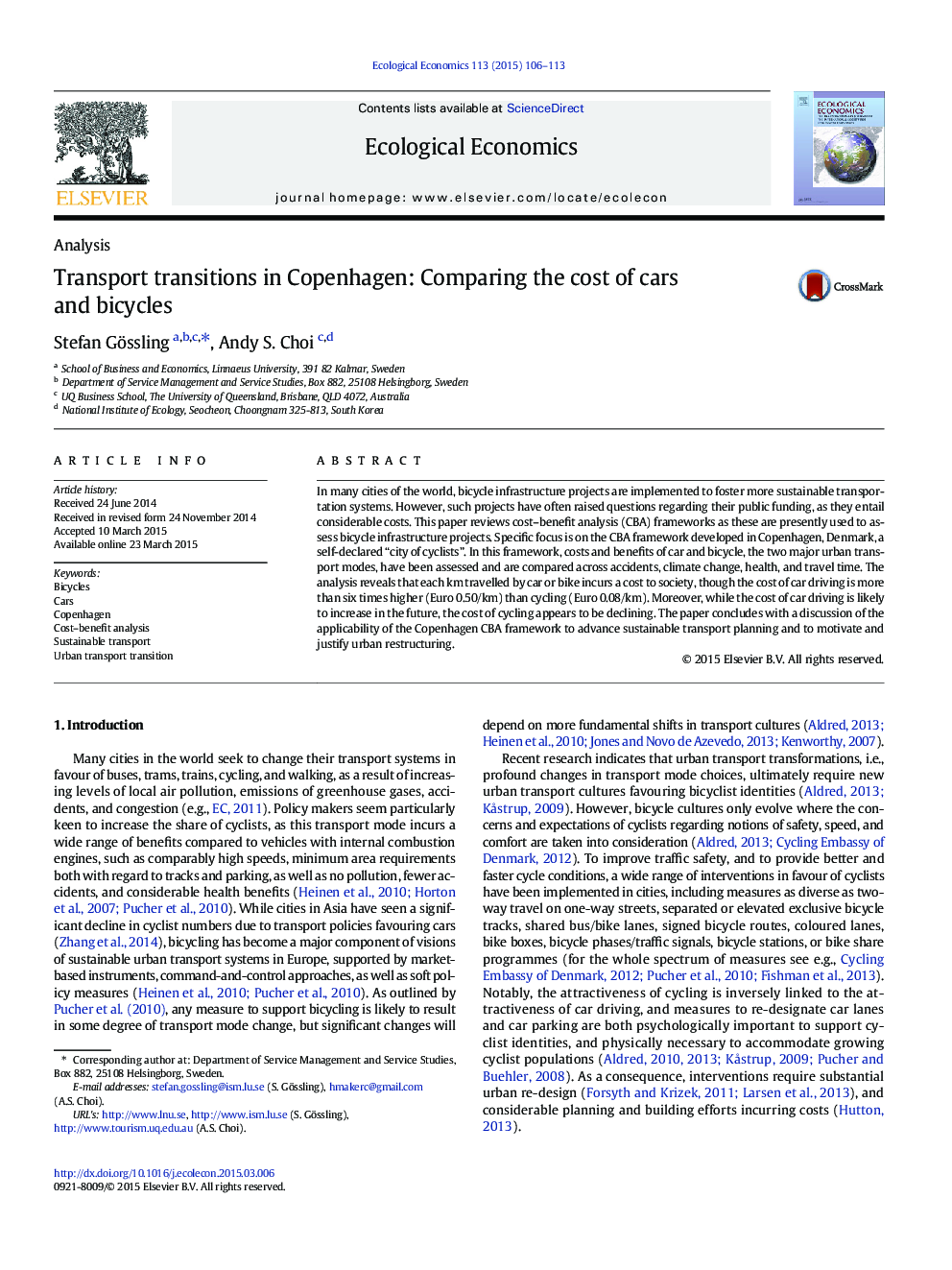| Article ID | Journal | Published Year | Pages | File Type |
|---|---|---|---|---|
| 5049393 | Ecological Economics | 2015 | 8 Pages |
â¢Cycling usually omitted in transport CBA.â¢City of Copenhagen uses CBA to compare cost of transport modes.â¢Cost of car driving is six times higher than cycling.â¢Considering only externalities, cycling represents a benefit to society.â¢Infrastructure change in favor of the bicycle economically justified
In many cities of the world, bicycle infrastructure projects are implemented to foster more sustainable transportation systems. However, such projects have often raised questions regarding their public funding, as they entail considerable costs. This paper reviews cost-benefit analysis (CBA) frameworks as these are presently used to assess bicycle infrastructure projects. Specific focus is on the CBA framework developed in Copenhagen, Denmark, a self-declared “city of cyclists”. In this framework, costs and benefits of car and bicycle, the two major urban transport modes, have been assessed and are compared across accidents, climate change, health, and travel time. The analysis reveals that each km travelled by car or bike incurs a cost to society, though the cost of car driving is more than six times higher (Euro 0.50/km) than cycling (Euro 0.08/km). Moreover, while the cost of car driving is likely to increase in the future, the cost of cycling appears to be declining. The paper concludes with a discussion of the applicability of the Copenhagen CBA framework to advance sustainable transport planning and to motivate and justify urban restructuring.
